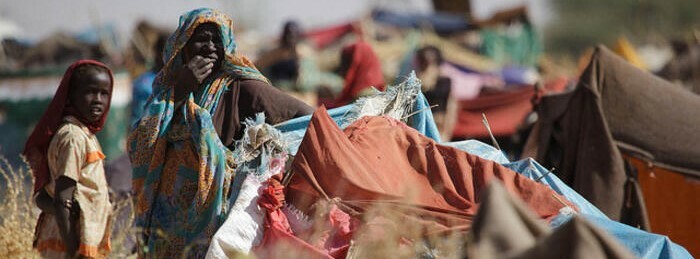Displaced families from Kutum locality, currently seeking refuge at the Ali bin Abu Talib Centre in El Fasher, Sudan’s North Darfur State, complain about food and medicine shortages. They appeal to humanitarian and charity organizations to intervene.
Kutum is located 850 kilometers west of El Fasher town. In early June, Kutum witnessed violent clashes between the Sudanese army and the paramilitary Rapid Support Forces (RSF), forcing civilians to leave their homes and seek refuge in El Fasher and other surrounding areas.
Al-Sadiq Nemir, a supervisor at Ali bin Abu Talib Centre in the Abu Shouk neighborhood, told Radio Tamazuj Thursday that they lack food and medicines, saying there is an increase in cases of malaria and typhoid in the center.
“The main challenge facing us here at the camp is the diseases. There are many cases of malaria and typhoid as well as difficulties in accessing medication. However, we thank the Abu Shouk Healthcare Center for cooperating with us,” he said.
“The other challenge is food supplies. Some humanitarian organizations have provided food, but we may lack food in the coming few days, so we need food in the coming period,” he added.
Nemir also complained about overcrowding in the center, pointing out that one room accommodates more than fifty people, which may exacerbate the spread of diseases.
When asked about water supplies, he said some organizations, including ZOA and Tabashir, work to provide water, but more is needed for the displaced families.
Meanwhile, Inaam Abdullah Adam, a displaced woman at the center, also confirmed the spread of malaria and attributed the reason to poor sanitation and hygiene in the camp. “In terms of food, some organizations have provided us with food, but we still face challenges when it comes to diseases because there are increasing malaria cases,” she explained.
She pointed out that the bathrooms and toilets are close to their rooms, which she said exacerbates the health conditions. “We need the organizations to improve our environment because women and children need care because most of the affected group is women and children in the camp,” she said.




